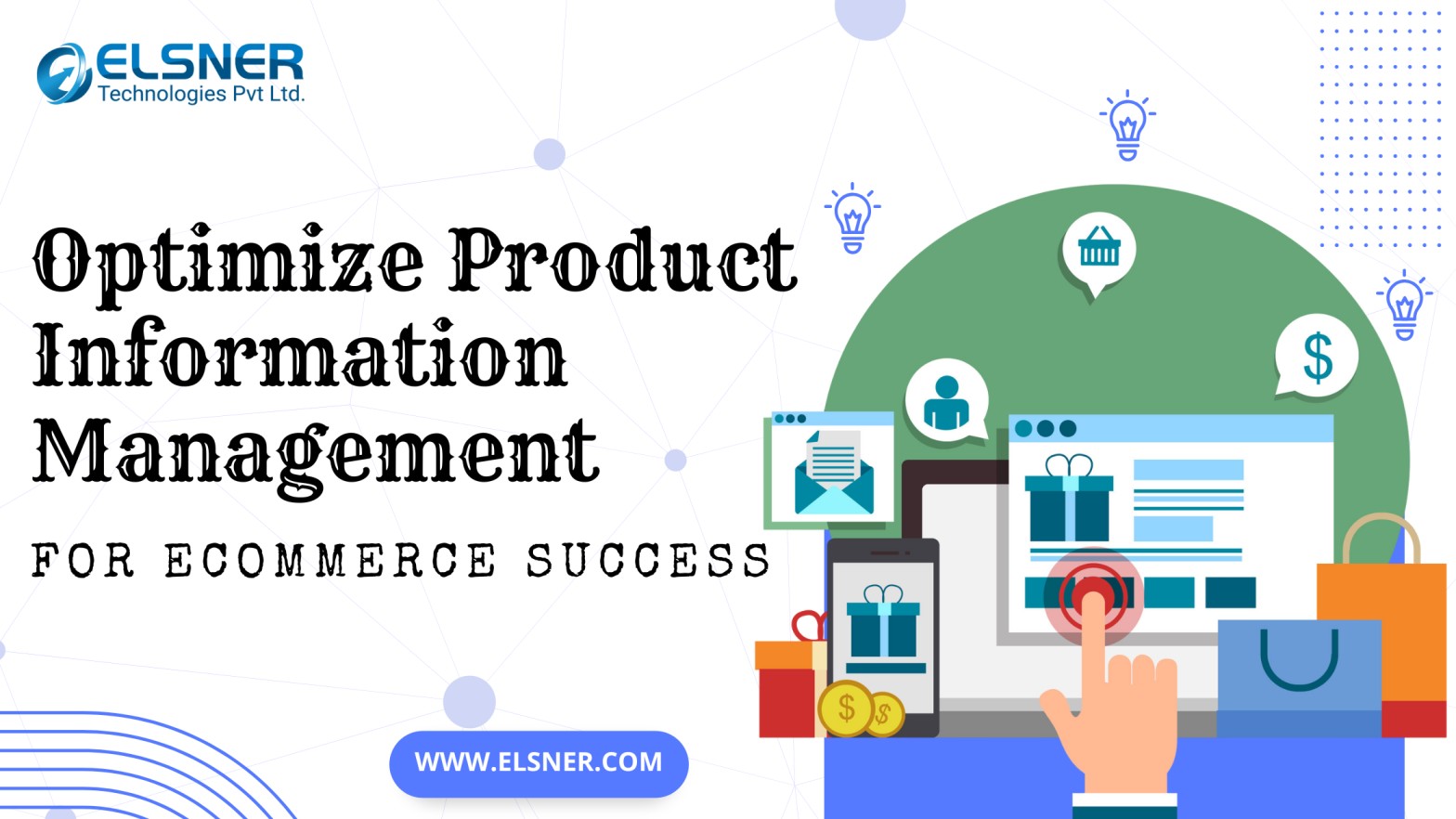- What Is Data Governance in Pimcore?
- Key Features of PIMcore Magento 2 Integration That Enable Data Governance
- Data Modeling & Validation
- Versioning & Audit Trails
- Role-Based Permissions
- Workflow Automation
- Data Quality Rules
- Best Practices for Implementing Governance with PIMcore
- Define Clear Data Ownership
- Start Simple, Then Expand
- Build Multi-Language Workflows
- Map Compliance Standards Early
- Leverage System Integrations
- Get Expert PIMcore Development Solutions
- Common PIMcore Magento 2 Development Mistakes to Avoid
- Overly Broad Access Rights
- Manual Workflow Overload
- Inconsistent Taxonomy
- Case Example: Pimcore Magento 2 Integration for Centralized Data Governance
- The Challenge
- The Solution
- The Results
- Moving Forward with Confidence
- FAQs
- Q1: What is Pimcore used for in data governance?
- Q2: Is Pimcore suitable for Magento 2 integration?
Gartner found that poor data quality drains $12.9 million from organizations annually. GDPR violations? They can cost up to 4% of yearly revenue. These aren’t just statistics they’re wake-up calls.
Smart companies turn to Pimcore for answers. This open-source powerhouse handles Product Information Management, Master Data Management, and Digital Asset Management all in one place. No vendor lock-in. No surprise licensing fees.
Today’s blog will talk about data governance in PIMcore and how PIM development services can help.
What Is Data Governance in Pimcore?
Data governance dictates who touches what data, when changes happen, and how quality stays consistent. Pimcore enforces these rules automatically.
Many teams mix up data governance with data management. Here’s the difference:
- Data management = technical stuff like storage and processing
- Data governance = the policies, approvals, and quality standards
Pimcore shines brightest with mid to large enterprises. These organizations juggle multiple markets, complex product lines, and strict regulatory requirements. The platform handles this complexity while keeping operations smooth.
Real results speak volumes. Companies typically slash data inconsistencies by 40-60% within six months with the help of PIMcore Magento 2 development services:
- Customer service teams field fewer product-related questions.
- Sales teams spend less time fixing catalog errors.
Key Features of PIMcore Magento 2 Integration That Enable Data Governance
Every feature serves a purpose in creating bulletproof data governance.
Data Modeling & Validation
Pimcore acts like a bouncer for your data. It checks every piece of information before letting it through. Want to ensure product weights are always in kilograms? Set the rule once. Need SKUs to follow a specific format? Configure it and forget it.
The PIMcore Magento 2 integration system prevents unnecessary data from entering in the first place. No more cleaning up messes after they’ve spread across multiple channels.
Versioning & Audit Trails
Every single change gets recorded. Jane updated the product description at 3:47 PM yesterday. There’s a record. Did marketing change the price last Tuesday? Captured with timestamps.
Compliance audits become almost enjoyable when you partner with PIMcore development services. Everything is documented automatically. No scrambling to find who changed what when.
Role-Based Permissions
Not everyone needs access to everything. Marketing teams see promotional content but can’t touch pricing. Finance teams access cost data but stay away from product descriptions.
PIMcore enterprise lets administrators create precise permission structures:
- View-only access for analysts
- Edit permissions for content creators
- Approval rights for managers
- Full admin access for system owners
Workflow Automation
Complex products need multiple approvals.
- Legal reviews compliance information.
- Technical teams verify specifications.
- Marketing polishes descriptions.
Pimcore routes change through the right people automatically. No more email chains or forgotten approvals. The PIMcore Magento 2 system knows who needs to review what.
Data Quality Rules
Think of these as automatic quality inspectors. They catch problems before customers see them:
- Missing product images
- Incomplete translations
- Invalid price formats
- Broken category assignments
Failed checks stop publication dead in its tracks. Problems get fixed before going live. You can take this further by exploring how AI enhances product data quality in Pimcore for smarter validation and automated improvements.
Best Practices for Implementing Governance with PIMcore
Success doesn’t happen by accident. These practices separate winning implementations from costly failures.
Define Clear Data Ownership
Someone needs to own every piece of data.
- Product managers handle basic product information.
- Legal teams manage compliance attributes.
- Regional managers oversee local requirements.
Clear ownership prevents the “not my job” syndrome. Everyone knows their responsibilities from day one.
Start Simple, Then Expand
Begin with basic validation rules:
- Required fields like product names
- Simple format checks for SKUs
- Basic image requirements
Add complexity gradually. Teams need time to adapt to new processes.
Build Multi-Language Workflows
Global companies face unique challenges. Different markets have different rules. Product descriptions need cultural sensitivity. Compliance requirements vary by region.
PIMcore enterprise workflow engine handles these complexities:
- Route content to regional reviewers
- Apply market-specific validation rules
- Manage localized approval processes
Map Compliance Standards Early
GDPR, ISO, and industry-specific regulations aren’t optional. Map these requirements to Pimcore’s data model from the start:
- Personal data handling procedures
- Audit trail requirements
- Data retention policies
- Deletion request processes
To stay aligned with how Pimcore continues to evolve, explore the latest Pimcore version updates for smarter data management and future-ready features.
Leverage System Integrations
Pimcore works best as the central hub.
- Connect it to ERP systems for cost data.
- Link it to CRM platforms for customer information.
- Integrate with eCommerce platforms for real-time updates.
Centralized governance means consistent policies everywhere. No data silos. No conflicting information across systems.
Organizations should hire Pimcore developers with industry-specific experience. Healthcare, finance, and manufacturing have unique requirements that generic implementations miss.
Get Expert PIMcore Development Solutions
Transform your data governance with our PIMcore development expertise. We help businesses streamline data, boost efficiency, and build future-ready digital experiences.
Common PIMcore Magento 2 Development Mistakes to Avoid
Even smart teams make costly errors. Learn from others’ mistakes.
Overly Broad Access Rights
Giving everyone access to everything backfires quickly. Accidental changes multiply. Security risks increase. Audit trails become meaningless.
Segment access carefully with the help of PIM development services:
- Sales teams see pricing but can’t edit specifications
- Marketing edits descriptions but stays away from technical data
- Regional managers handle local content only
Manual Workflow Overload
Complex approval processes need automation. Relying on email reminders and manual tracking creates bottlenecks. Important changes get stuck in someone’s inbox.
Partner with PIM development services to automate everything possible:
- Automatic routing based on product categories
- Escalation when approvals are delayed
- Notification systems for all stakeholders
Inconsistent Taxonomy
Product categories and attributes need standardization. Different teams using different naming conventions create chaos.
Establish clear taxonomy rules early:
- Standardized category structures
- Consistent attribute naming
- Regular taxonomy reviews and updates
Case Example: Pimcore Magento 2 Integration for Centralized Data Governance
Consider a growing electronics retailer expanding across European markets.
The Challenge
Multiple Magento 2 stores operated independently.
- Each region maintained separate product databases.
- Marketing teams entered data without coordination.
- Technical specifications varied between markets.
The result? Customer confusion and internal chaos. The same product had different descriptions in different countries. Pricing inconsistencies frustrated customers. Compliance documentation existed in scattered systems.
The Solution
Pimcore Magento 2 integration transformed operations completely. The company established Pimcore as the single data source. All product information flows through centralized governance workflows.
Regional teams now work within structured processes:
- Technical specifications get approved once and used everywhere
- Marketing content follows brand guidelines automatically
- Pricing updates sync across all channels instantly
- Compliance documentation links directly to products
The Results
Real-time syncing eliminated data inconsistencies. Customer experience improved dramatically. Product launches happen faster with coordinated workflows.
This approach particularly benefits omnichannel retailers.
- Fashion brands managing seasonal collections see immediate value.
- Electronics companies with complex specifications reduce errors significantly.
Pimcore Magento 2 integration ensures consistency across all touchpoints. Online stores, mobile apps, and physical locations display identical information.
Moving Forward with Confidence
Pimcore provides the foundation for scalable governance. Comprehensive features support complex enterprise needs. Integration capabilities extend governance beyond Pimcore itself.
Success requires more than technology, though. Proper planning matters. User training determines adoption rates. Ongoing optimization keeps systems running smoothly.
Pimcore development services providers accelerate implementation timelines. Experienced teams avoid common pitfalls. They understand industry-specific requirements that generic implementations miss.
Pimcore enterprise deployments prove the platform’s capabilities. Global manufacturers manage millions of SKUs effortlessly. Retail chains maintain consistency across thousands of locations. Service companies organize complex offerings with ease.
Ready to take control of your data chaos? Hire PIMcore developers today. Set up a compliant, scalable governance model that grows with your business ambitions.
FAQs
Q1: What is Pimcore used for in data governance?
Pimcore doesn’t just store data it actually enforces rules about who can change what, when those changes need approval, and whether the information meets quality standards. It constantly checks that your data stays clean, compliant, and consistent across every channel where customers might see it.
Q2: Is Pimcore suitable for Magento 2 integration?
Pimcore feeds your Magento 2 stores with fresh, accurate product data around the clock. When someone updates a product spec in Pimcore, every connected Magento store gets that change instantly.

About Author
Dipak Patil - Delivery Head & Partner Manager
Dipak is known for his ability to seamlessly manage and deliver top-notch projects. With a strong emphasis on quality and customer satisfaction, he has built a reputation for fostering strong client relationships. His leadership and dedication have been instrumental in guiding teams towards success, ensuring timely and effective delivery of services.





